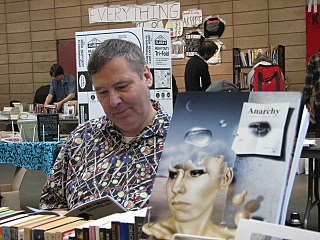A Quote by Seamus Heaney
God is a foreman with certain definite views Who orders life in shifts of work and leisure.
Related Quotes
Work is a blessing. God has so arranged the world that work is necessary, and He gives us hands and strength to do it. The enjoyment of leisure would be nothing if we had only leisure. It is the joy of work well done that enables us to enjoy rest, just as it is the experiences of hunger and thirst that make food and drink such pleasures.
The higher orders [of angels] are presumed to be closer in their nature to God and to function in roles that serve God more directly than the lower orders, which tend to the administration of the physical universe and the service of humankind. Some orders are associated with particular divine qualities - Seraphim with Love, Cherubim with Wisdom, Thrones with Judgment.
Life is everything. Life is God. Everything shifts and moves, and this movement is God. And while there is life, there is delight in the self-awareness of the divinity. To love life is to love God. The hardest and most blissful thing is to love this life in one's suffering, in the guiltlessness of suffering.
Now the code of life of the High Middle Ages said something entirely opposite to this: that it was precisely lack of leisure, an inability to be at leisure, that went together with idleness; that the restlessness of work-for-work's sake arose from nothing other than idleness. There is a curious connection in the fact that the restlessness of a self-destructive work-fanatacism should take its rise from the absence of a will to accomplish something.
Hard-earned achievement brings a sense of self-worth. Work builds and refines character, creates beauty, and is the instrument of our service to one another and to God. A consecrated life is filled with work, sometimes repetitive, sometimes menial, sometimes unappreciated but always work that improves, orders, sustains, lifts, ministers, aspires.
Action is the music of our life. Like music, it starts from a pause of leisure, a silence of activity which our initiative attacks; then it develops according to its inner logic, passes its climax, seeks its cadence, ends, and restores silence, leisure again. Action and leisure are thus interdependent; echoing and recalling each other, so that action enlivens leisure with its memories and anticipations, and leisure expands and raises action beyond its mere immediate self and gives it a permanent meaning.
... the place where [adults] pass the most time and submit to the closest control is at work. Thus, without even entering into the question of the world economy's ultimate dictation within narrow limits of everybody's productive activity, it's apparent that the source of the greatest direct duress experienced by the ordinary adult is _not_ the state but rather the business that employs him. Your foreman or supervisor gives you more or-else orders in a week than the police do in a decade.






































